New survey to collect gender-sensitive poverty data in Solomon Islands and Tonga

Equality Insights will be implementing Equality Insights Rapid, a gender-sensitive measure of poverty and inequality, in Solomon Islands and Tonga later this month. The survey will provide insights into material, social, economic, and environmental factors that shape poverty and inequality.
Solomon Islands and Tonga will be the first countries in the world to use this new survey. Equality Insights is partnering with the Tonga Statistics Department to deliver the survey in Tonga. In Solomon Islands, we will be collaborating with Dignity Pasifik, a women-led research business, with support from the Solomon Islands National Statistics Office and the Ministry of Women Youth Children and Family Affairs.
This is a phone based survey using Computer Assisted Telephone Interviewing (CATI), and is designed to collect information quickly and remotely in light of the pandemic which has disrupted face-to-face data collection. This enables a more rapid generation of inclusive data that is required for evidence-based decision-making and intersectional analysis to inform a gender-responsive pandemic recovery, as well as policies and programming to reduce poverty and inequality.
Equality Insights Rapid measures multidimensional poverty, collecting information about 15 key aspects of life, including the areas that can be overlooked when measuring poverty and inequality. The 15 dimensions include: food, water, shelter, health, education, energy, sanitation, relationships, clothing, safety, family planning, environment, voice, time-use, and work, as well as assets to provide an indication of financial wealth.
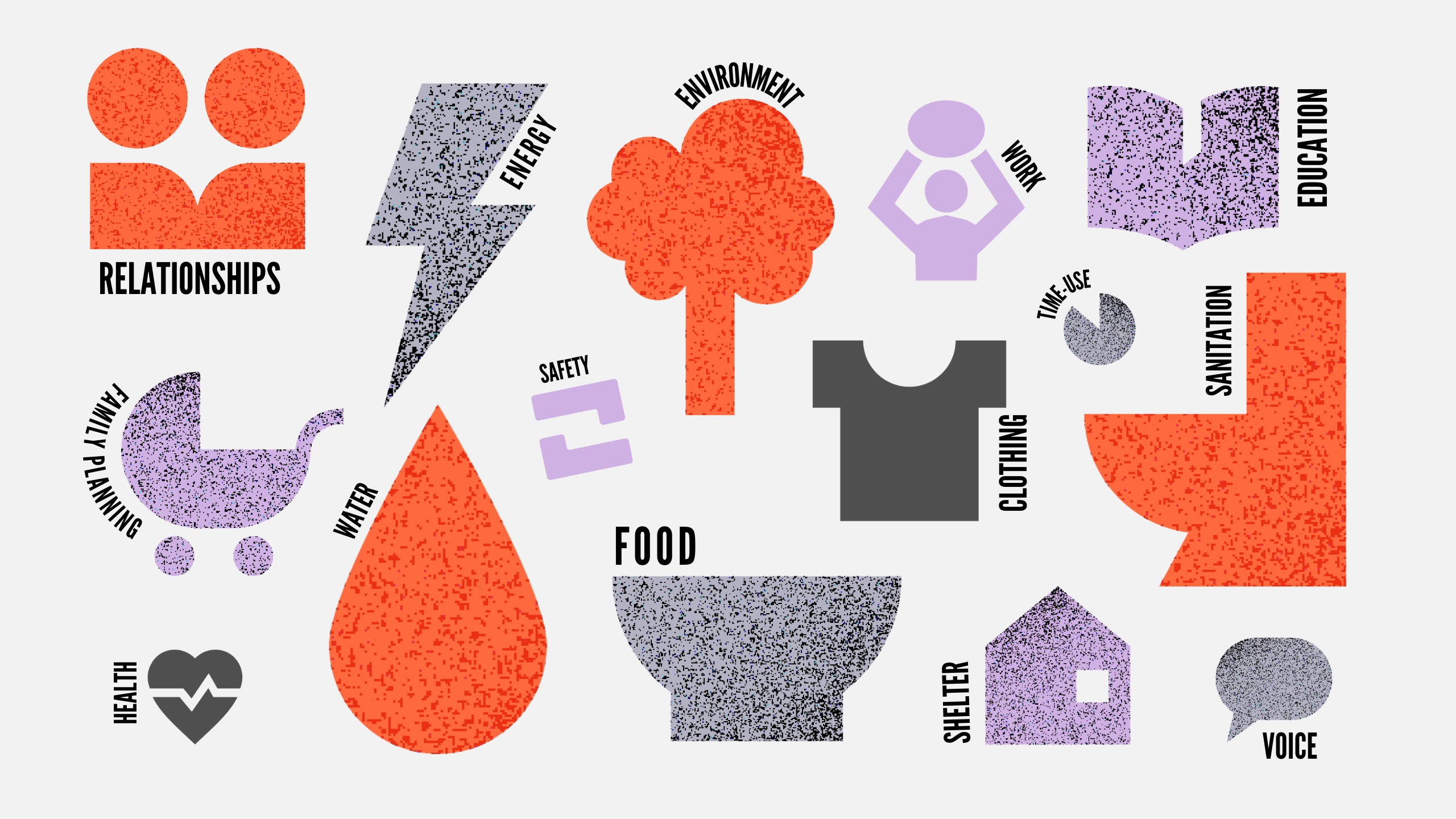
The 15 dimensions that Equality Insights Rapid measures
Equality Insights Rapid takes an individual-level approach by surveying all adults within a household, rather than a household-level approach that only surveys ‘heads of households’. This shines a light on people’s specific circumstances, and reveals how gender, age, disability, location and other factors shape experiences of poverty and inequality. An individual-level approach reveals important insights about differences that exists between members living in the same households, where it is estimated approximately one third of global inequality exists. Failing to capture these intra-household differences can result in a systematic underestimation of poverty and inequality, and fails to consider the lived experiences of household members. By surveying every adult in a household, Equality Insights Rapid illuminates gendered experiences that are hidden in other measures.
We recognised that the traditional ways of measuring poverty – assessing the circumstances of households, not of individuals; applying a narrow definition of poverty that only considers income, or a small range of other factors; and using gender-insensitive approaches – are inadequate, and no longer acceptable. Powered with inclusive data, policy-makers, women’s rights organisations and other advocates can make evidence-based decisions to reduce inequalities and the barriers that sustain them.
So far, the first ever call-centre for survey administration and data collection in Solomon Islands has been established as a result of Equality Insights Rapid and our partnership with Dignity Pasifik. This will have a lasting impact, enabling greater capacity to generate timely and quality data.
Data collection training with enumerators – or data collectors – has taken place, and the data they collect will then be analysed by Equality Insights in collaboration with Tongan and Solomon Islands stakeholders. Intersectional analysis will provides new insights about who has been most affected by the COVID-19 pandemic and the recent volcanic eruption in Tonga, for example, and how this is influenced by factors such as gender, age and disability.
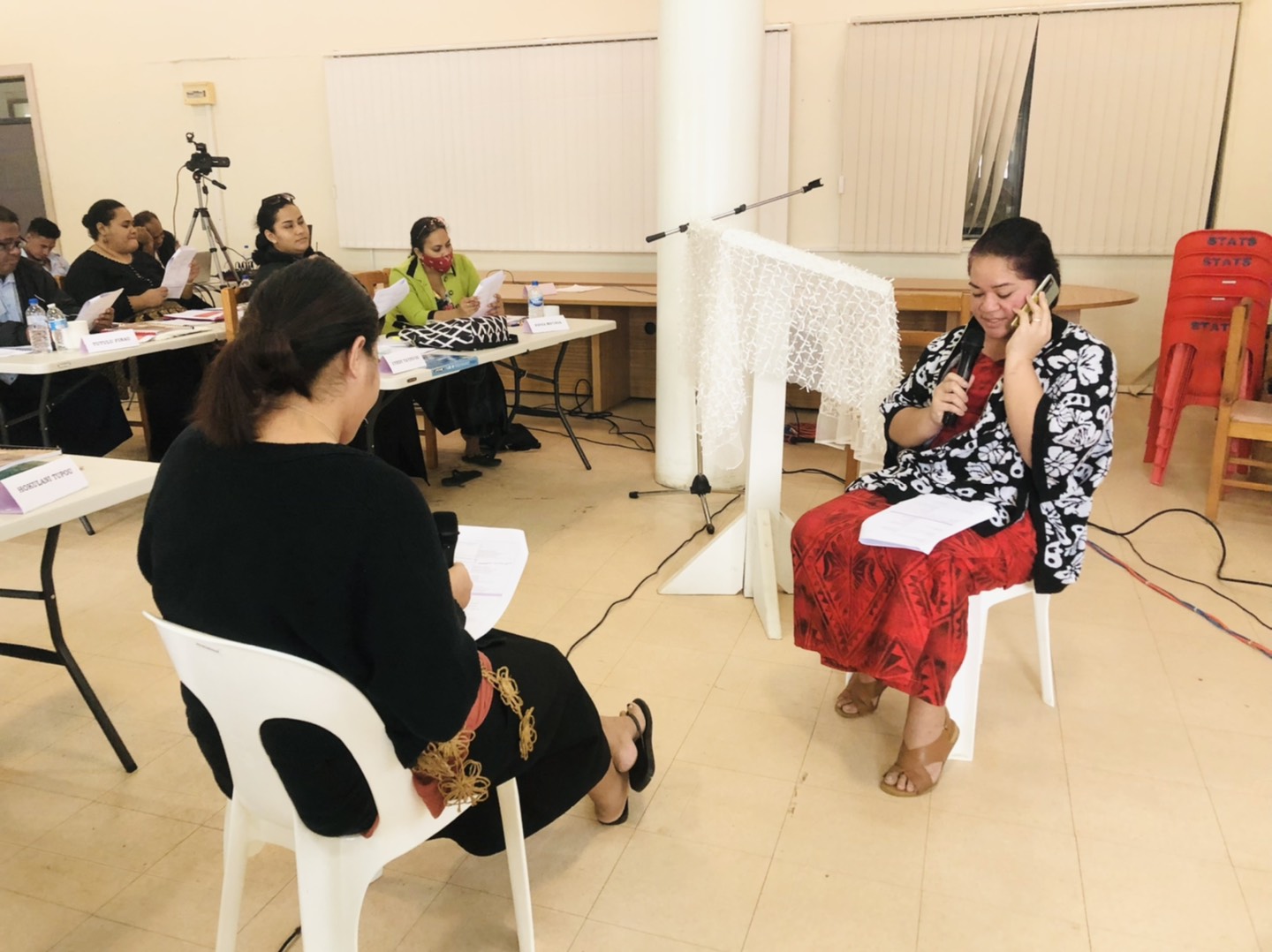
Tongan enumerators practicing using the Equality Insights Rapid survey
The insights are then published in a series of briefs developed in collaboration with our data collection partners, and will be used to support pandemic recovery efforts, helping to identify who is most affected and how to have the greatest impact. The combination of our purpose-built survey and our sampling method allows for demographic, social group and within-household analysis, including disaggregation by gender, age, disability, ethnicity, geography, and other relevant characteristics, as well as the intersections of these factors. These unique, intersectional insights contributes to the availability of disaggregated data required to leave no one behind.
Generating individual-level, gender-sensitive data about multidimensional poverty enables decision-makers to identify and focus on the areas of greatest need to achieve the greatest impact. Inclusive poverty data not only allows us to reimagine a world where everyone thrives, but to actually build forward differently – more sustainably, inclusively, and equitably.
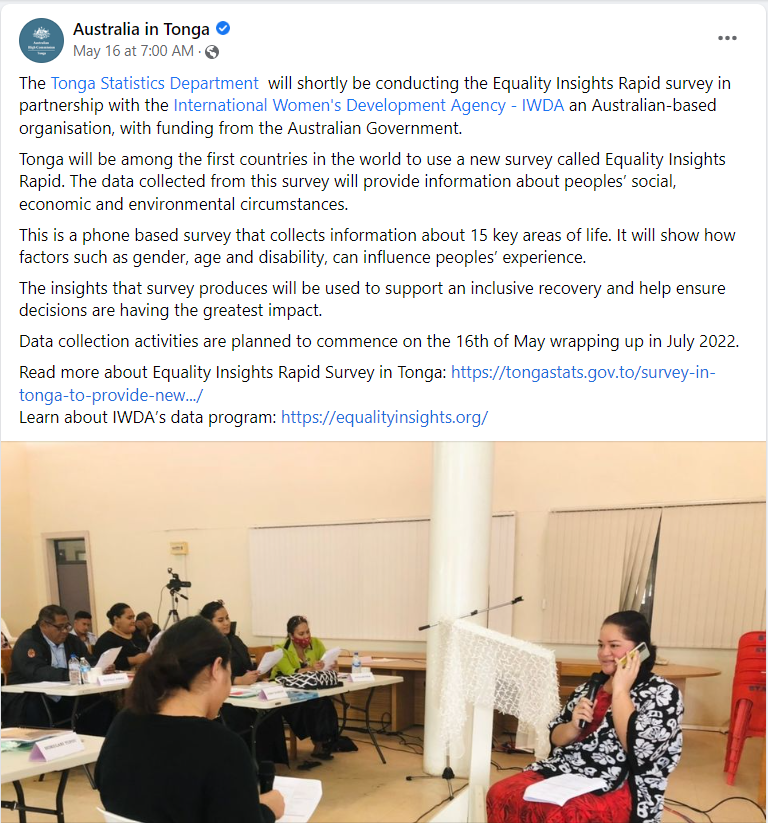
Facebook post from the Australian High Commission in Tonga about Equality Insights Rapid
Currently, significant data gaps in this region limit information about the circumstances of women, people with disabilities, and those living in poverty. The immediate focus of Rapid is to help fill these gaps, and support gender responsive outcomes in COVID-19 responses and recovery efforts in the Pacific region. The survey is being undertaken with funding from the Australian Government through the Department of Foreign Affairs and Trade, as part of its support for COVID-19 response in the Pacific, to strengthen the evidence base available to inform inclusive action.
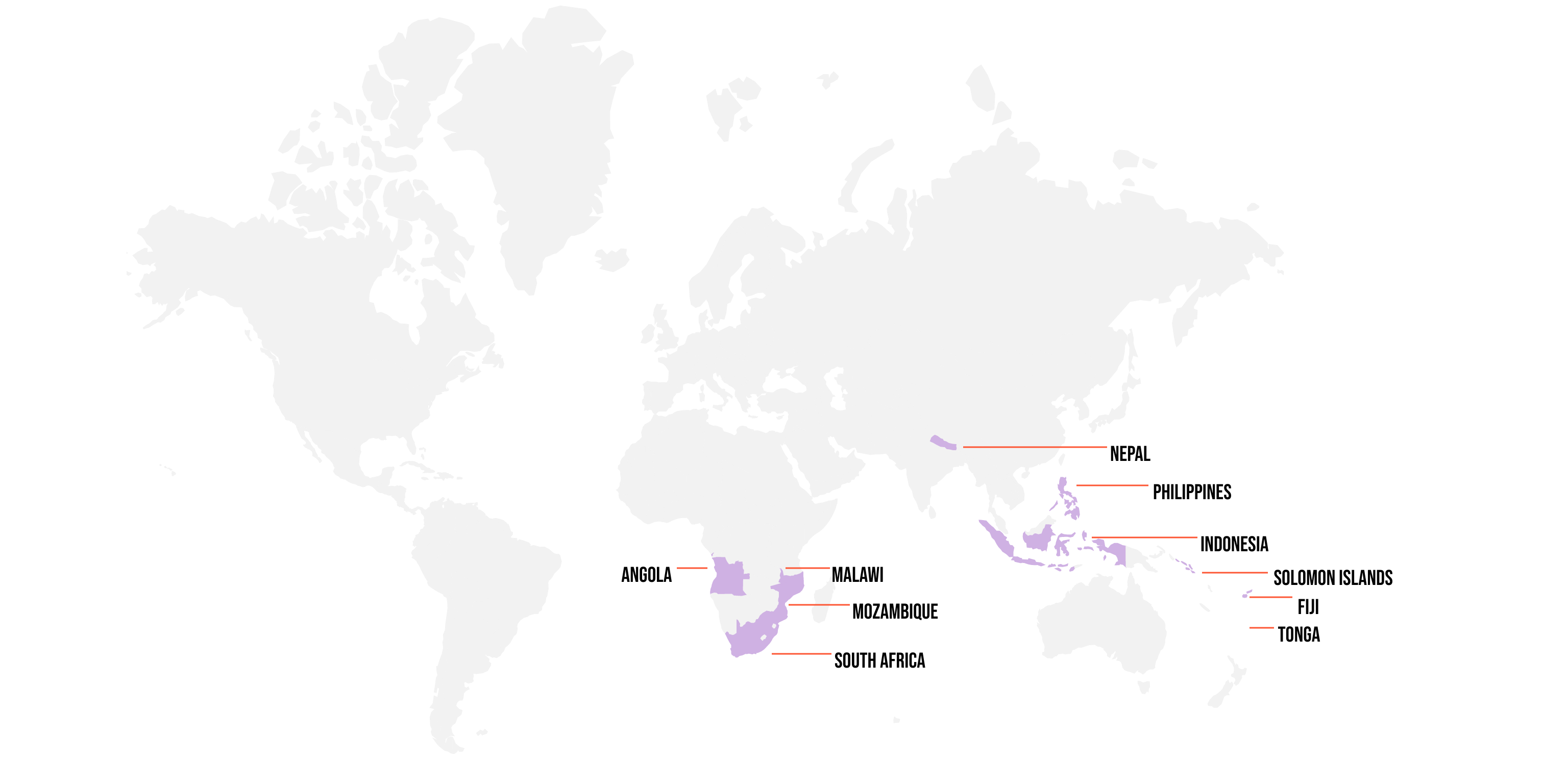
Research and data collection context informing Equality Insights Rapid
This document provides an overview of process undertaken to develop Equality Insights Rapid, a description of the key considerations that informed the item reduction process, and the survey items that will ultimately be included in the Equality Insights Rapid survey tool.
READ THE REPORT
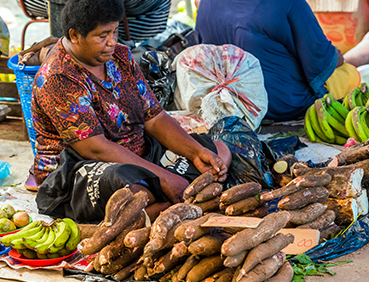
Comments